This site is being reviewed and updated as needed to comply with President Trump's executive orders.
 | BlogThe APS Blog is updated regularly with posts from contributing authors and new publications from the Adult Protective Services Technical Assistance Resource Center (APS TARC). Check back frequently or subscribe to our email list to receive updates. If you have ideas for future blog post to share with us, reach out to us via the Contact Us form at the bottom of the page. |
Blog Posts

Emergency and Transitional Housing for Older Adults
July 2025
Thanks to grant funding from the Administration for Community Living (ACL), emergency and transitional housing for older adults facing abuse, neglect, and exploitation in Eastern Massachusetts has been greatly expanded. The Center for Prevention of Elder Abuse and Neglect (CPEAN) at Hebrew SeniorLife (the state’s only shelter dedicated to this population) has increased shelter space by 60% and partnered with four adult protective services (APS) agencies across 30+ communities, including Boston. With these resources, CPEAN now delivers trauma-informed, age-sensitive housing that prioritizes stability and dignity, making it a vital safety net for older adults in crisis. In this article, Rachel Lerner, Esq., executive director at Hebrew SeniorLife CPEAN, talks about the impact these shelters have on their work and the people they serve.

Memorandums of Understanding: Where Tribal Sovereignty Meets Elder Protection
May 2025
As a follow-up to the blog “The Invisible Urban American Indian and Alaskan Native Older Adults,” the Adult Protective Services Technical Assistance Resource Center (APS TARC) asked the staff of the International Association for Indigenous Aging (IA²) to discuss memorandums of understanding (MOUs) and the support provided by the Native American Elder Justice Initiative (NAEJI) Resource Center.

Trauma Informed Approach to APS
April 2025
Becoming trauma-informed in our work as adult protective services (APS) professionals is another way we can better serve our clients. By understanding and recognizing the signs of trauma, we can provide more empathetic and effective support to our clients, many of whom have faced significant challenges. Robin Pendleton, Lead Trainer at The Pursuit of Discovery, shares some simple yet powerful changes we can make in our daily practices to better serve our clients.

Worker Safety: When in Doubt, Get Out
March 2025
Ensuring the safety of adult protective services (APS) professionals during home visits is of the utmost importance. Programs can enhance safety by updating their processes such as including key questions in the initial intake to help APS professionals identify potential dangers prior to the visit. Chris Dubble of The Pursuit of Discovery shares more about protecting APS professionals and his No. 1 tip for safety.

The Invisible Urban American Indian and Alaskan Native Older Adults
March 2025
As the older adult population continues to grow nationally, the number of American Indian and Alaskan Native (AI/AN) older adults is also growing, and they are living longer. NAPSA's Kendra Kuehn talks about why education and training are an important part of an adult protective service (APS) approach to understanding these differences.

End-of-Life Situations and APS
February 2025
Navigating end-of-life situations can be one of the most challenging aspects of working in adult protective services (APS). Understanding end-of-life care options, such as hospice and advance care directives, is crucial in providing compassionate and informed assistance. Katie Wilson, NAPSA, explores the importance of being prepared for these sensitive situations, offering insights into the emotional and professional readiness needed to handle the complexities of death and dying with dignity and respect.

Celebrating Partnership: A Night of Recognition
February 2025
“APS cannot do this work alone” has been a motto for Texas Adult Protective Services (APS) for the past few years and has become the foundation for Texas APS’s Partnering to Protect initiative, which launched in 2023. Diana Hilsman, MPH
Former Partnering to Protect Project Manager, discussed the importance of taking time to develop strong parternships to better serve our clients.

Best Practice for Law Enforcement and APS Partnerships
January 2025
To increase prosecutions and improve the relationship between law enforcement and APS, Missouri (MO) APS has partnered with a specialized unit for cases potentially involving crime. Jerry Greene, MO Office of Special Investigations unit chief, tells us more about this partnership and the benefits.

Elder Justice Coalitions and the Role of Adult Protective Services
January 2025
Over the past five decades, social welfare coalitions have played a pivotal role in advocating for societal progress and advancements in victim services. Paul Caccamise and Maggie Morgan of the National Center for State and Tribal Coalitions discuss elder justice coalitions and their role in APS.

A Look Back at 2024: Laws and Regulations Galore!
November 2024
Since the elections have passed and 2024 is ending soon, it’s time for our annual review of legislation and regulations at the state and federal level impacting adult protective services (APS) programs and older adults, and people with disabilities. Kendra Kuehn examines opportunities for APS and partner programs that work together.

Investigating Cases Involving Cryptocurrency
September 2024
With the increase in popularity and accessibility of cryptocurrency comes an increase in the number of exploitation reports made to adult protective services (APS) involving cryptocurrency. This article by Caroline Burnell at Temple University discusses what cryptocurrency is, its value, why people would own it, and how criminals are using it.

Gee, Ain’t It Funny: Why Investigation Response Times Matter
August 2024
For an APS worker, the more it slips away, the more difficult it becomes to optimally work cases: client and collateral memories slip away; the meaning of interview notes slips away; and clients needlessly stay in the state of maltreatment the longer a case lingers. We don’t want clients to slip away. Karl Urban examines why investigation response times matter.

The Multigenerational Workforce: View from the National Adult Protective Services Training Center
July 2024
Generations are defined by being born in specific time periods with shared experiences and common influences that may shape their values, perspectives, and behaviors. Staff from the National Adult Protective Services Training Center share their perspectives on the challenges, triumphs, and best practices in supporting a multigenerational APS workforce.

National, State, and Tribal Collaborations and Resources
June 2024
With 574 federally recognized Indian nations and hundreds more that are recognized at the state level, it is essential that APS programs build practices that recognize and support American Indian and Alaska Native (AIAN) older adults and people with disabilities. Three authors examine the resources and collaborations that help lead the way when working with this population.

Under 65 and Living in Long-Term Care: What APS Needs to Know
June 2024
While strides have been made in enabling adults under the age of 65 with disabilities to live independently in a community of their choice, a small but growing number live in various types of facilities. Kendra Kuehn examines this population and highlights what APS professionals should know.

Collaboration for Adult Protective Services in Indian Country
February 2024
State adult protective services (APS) programs work with Native American tribes within their state areas, and there is a need to develop collaborative and helpful partnerships to benefit those who need services. This blog discusses some helpful approaches and ideas, specifically how the Muckleshoot Tribe operates our APS program.

Affordable Housing and Adult Protective Services
February 2024
Stable and accessible housing is essential to wellbeing and quality of life at all ages. The U.S. Department of Health and Human Services’ Healthy People 2030 includes housing stability as a key support to positive health outcomes. But access to stable and affordable housing is becoming more difficult for many older adults and people with disabilities. In this blog, Kendra Kuehn explains affordable housing basics and resources for accessing affordable housing.

Adult Maltreatment Report 2022: Taking NAMRS to the Next Level
January 2024
The National Adult Maltreatment Reporting System (NAMRS) was developed to better understand the phenomena of adult maltreatment and identify system gaps for responding to maltreatment and preventing repeat maltreatment. In this blog, APS TARC staff member and report co-author Leslie McGee examines the forthcoming Adult Maltreatment Report and provides highlights of its upcoming data.

What’s “Unwinding” or “Medicaid Renewal” All About and Why Should I Pay Attention?
August 2023
During the COVID-19 pandemic certain rules about Medicaid eligibility were relaxed so people with Medicaid would have access to health care during the public health emergency. In May 2023, this Medicaid leniency ended, and states have returned to reassessing eligibility for Medicaid for every Medicaid beneficiary. This blog post explores the potential impact of the reassessments and provides resources for clients and practitioners to help individuals gain or maintain access to needed services.

R3: An Exciting New App to Help Recognize, Report, and Respond to Abuse
November 2023
The Massachusetts Disabled Persons Protection Commission (DPPC) and its project partners have released DPPC’s R3 app for adults with disabilities. The R3 app was designed with and for adults with disabilities to help them recognize, report, and respond to abuse. This month’s blog explores how the app was developed and funded, as well as information on how adults with disabilities across the country can utilize this important resource.

Highlights of 2023 Legislation: Collaborations, Teamwork, and Fighting Discrimination
October 2023
As most state legislatures finish their work for 2023, many have passed significant measures impacting adult protective services (APS) programs, clients, and partners. In preparation for the next year, we’re taking the opportunity to look back at what’s happened across the country concerning adult maltreatment legislation.

Mental Health vs. Mental Illness: Distinguishing the Differences
September 2023
One in five adults (21%) are experiencing at least one mental illness, and a little over half of them (55%) have not received any treatment. APS workers are very likely to encounter individuals who are experiencing mental illness, whether they are diagnosed (and/or receiving treatment) or not. This blog post explains the differences between mental health and mental illness and provides helpful information and resources to support effective APS practice with clients involved with the mental health system.

The APS Administrative Data Initiative (AADI): Using Administrative Data to Strengthen APS Programs
July 2023
As federal agencies support the development of, and access to, data systems for APS, researchers and practitioners are increasingly using administrative data to study different types of adult mistreatment and the systems that respond to them. This blog post discusses the APS Administrative Data Initiative and the ongoing nationwide effort to collaboratively identify significant, unmet needs related to APS administrative data, develop a roadmap to address those needs, and use the data to study and address adult mistreatment.
Last Modified: 12/16/2025

